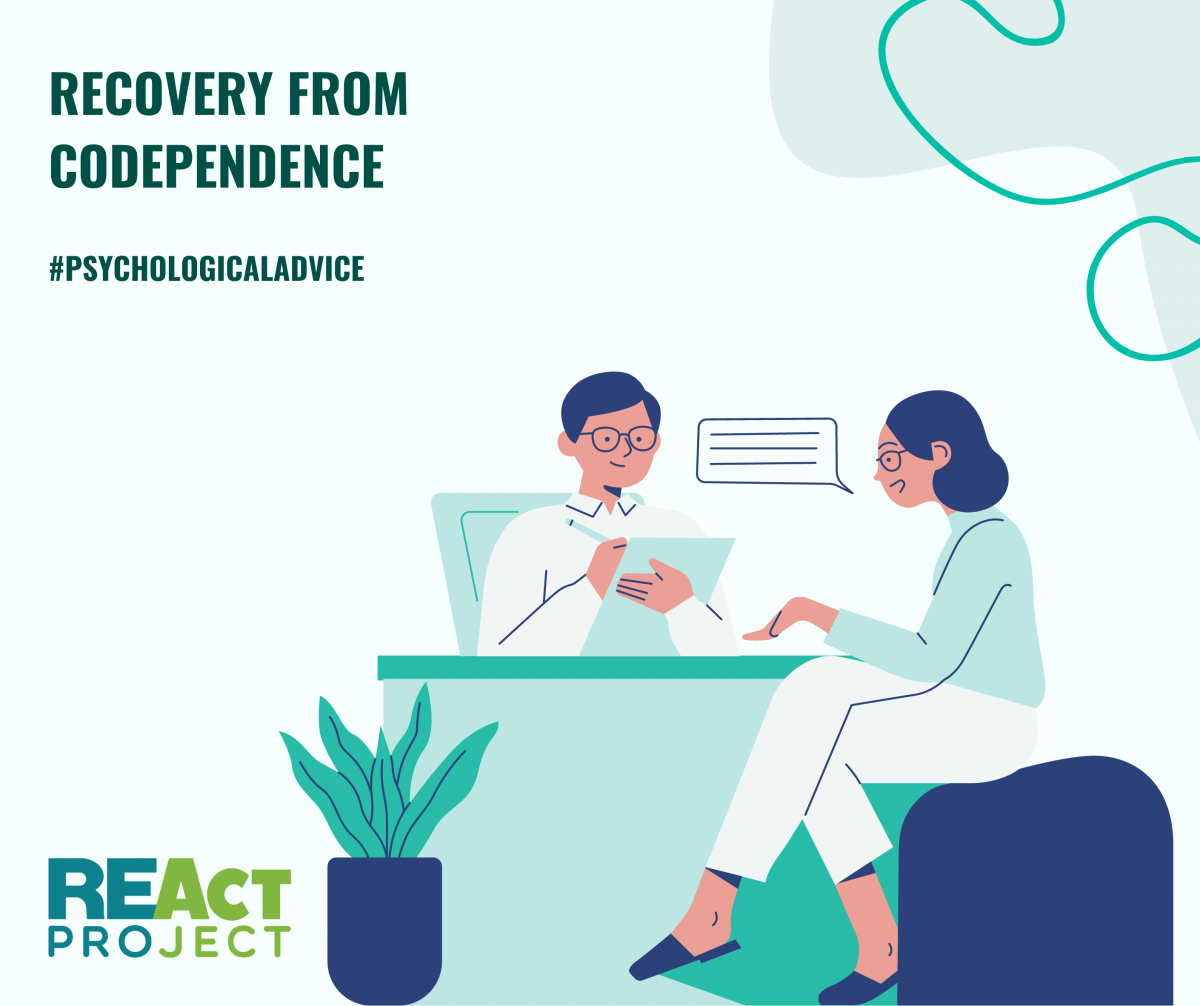Recovery from codependence is not an event; it is a process demanding time and effort. Recovery will not occur automatically only because your addicted close person has sobered up, you divorced, or he died. As it takes time to become codependent, it also takes time to recover.
The main challenge is that in most cases codependent people do not want to get rid of the unpleasant feelings; instead, they want the person who, they believe, causes the unpleasant feelings, to change their behavior. In other words, they are not willing to change themselves but demand this from their chemically addicted relatives.
Usually, the attempts to intervene encounter denial, resistance, and sabotage of the codependent person. In addition, the resistance and treatment sabotage are more aggressive with codependence.
Challenges begin with answering the “What should I do?” question. Actually, most often the clients asking this question, already know the answer and merely want to get “approval” to act according to their own decisions. If the provided recommendations do not meet their action plan, a conflict arises.
What do the codependent clients want when they seek help?
Most often they ask for help because they are desperate, incapable, and absolutely unable to cope with their addicted relative on their own.
Since we deal with adult people, the wording “please do something about him” excludes the possibility to help. Who can do anything with a grown-up person against his or her will and what?
Very often the root of the problem is that people suffering from other people’s conduct, do not even try to resist. Or they try but abandon further attempts after the first failure.
Usually, when radical solutions are proposed to change the catastrophic situation (relocation, reporting to the law-enforcement authorities, isolation of the sick person), codependent people feel offended and reject such proposals, opting for routine suffering. But nothing will change unless you do not try to change anything!
The request of the relatives of an addicted person should be worded like this: “Treat him to stop him bullying us, protect us from him.” This is also supported by the fact that the lion’s share of codependent people’s calls “for help” sound like this: “Could you take him away and lock him somewhere?” This is rather a prison than treatment!
Treatment is a long process, and the end result may never be achieved. The relatives of the chemically addicted person must take the responsibility for their own lives and live the lives they choose, not the lives imposed on them by the addicted person.
Sometimes chemically addicted people are quite well socialized: they may have jobs, care about their families or just live their own lives not bothering anyone. Their relatives may respond differently: some tolerate and accept the circumstances; others keep trying to change the situation. In such cases, it is not the harm caused by the addicted person to codependent people but the way they harm themselves that makes codependent people suffer. These people need other help than described above.
Such clients seek solutions how to cope with pain, desperation, fear, and depressions caused by the chemical addiction of their loved ones, or, more precisely, by their unwillingness to do anything to stop ruining themselves. If the inquiry is formulated this way, help is possible – codependent people are asking to help them, not anyone else. The best help in case of such inquiry is support and friendly sympathy, avoiding any judgment, advice, teaching, and mentor tone. The wellbeing of the relatives of the addicted person changes dramatically when they realize that they are not alone, that hundreds and thousands of people share the same problem. Mutual assistance networks and communities and empathy and understanding of at least one person are incredible resources in this situation!
Thus, there are two types of codependent people seeking help, first asking “Do something about him”, the other one asking, “Do something about me”. The status may change if the codependent person looks at the problem from a different perspective, taking an active position in his or her own life.
The codependent person may gain this insight after realizing the vanity of all the attempts to influence the other person. This will give the codependent a chance to maintain what remains.
Psychological help to a person with the second type of codependence may be successful: help targets the codependent person, upon his or her consent and with his or her active involvement.
There is the third, “most dangerous” type of codependence. It includes people who made their codependence their lifestyle, and “saving” their relative – the purpose and the sense of their lives. Such patients keep saying that they need help, but they actually do not want it and actively reject any help. Their main message is “He/she will not survive without me!” Most often these are single mothers of grown-up sons, sometimes – wives who want to keep the status quo, whether they realize it or not. Ironically, such a situation has many benefits: the sense of own significance; understanding the purpose of own being; total occupation with a seemingly useful service; maintaining the feeling of own significance; the feeling of power; help from other people. The mutual benefit of such an alliance leaves no room for changes. The only possible solution is the complete end of the relationship but usually, this option is rejected by both parties.


